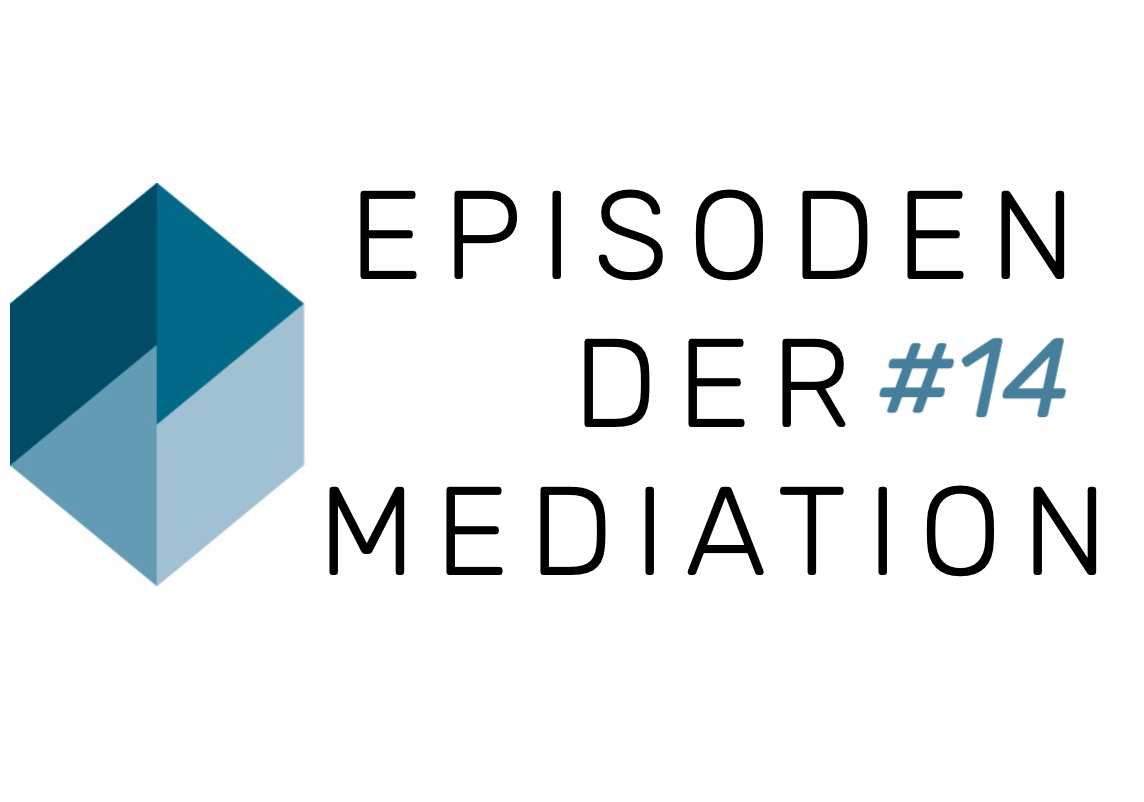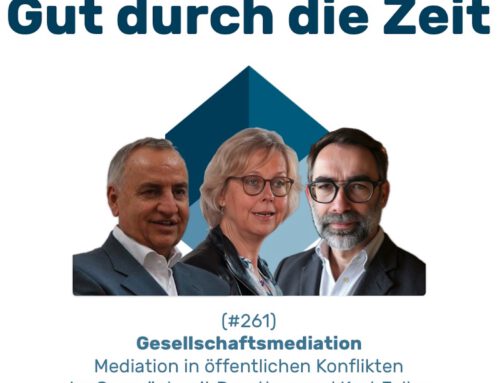INKOVEMA Podcast „Episodes of Mediation“
#14 EdM – The contracting phase of mediation
What – all – has to happen before mediation can take place and why this is a good thing…
Episodes of mediation. The podcast on practical questions about mediation and conflict management.
Welcome to the EdM,
INKOVEMA's teaching stream on the practical issues of mediation and conflict management.
Practical situations in mediation, but also in coaching and conflict counselling, are explained, reflected upon and categorised.
Introduction
The contract phase comprises the Period from making contact to the conclusion of a mediation contractwhich can, of course, also be concluded verbally. The Mediator contract establishes the mandate for the third party to conduct the conflict management of the parties in a structured manner by way of mediation so that they can reach a decision that clarifies the conflict.

As a rule, an additional Mediation contractThe agreement of the parties to the conflict that they wish to resolve their conflict with the help of a mediator in mediation. This is usually implied when a mediator is requested and commissioned. Here, however, it is explicitly stated.
Sometimes, but far too rarely, the parties to the conflict have already reached this agreement, very rarely even before the conflict arises. In this case, they have a Mediation agreementThe parties have agreed a so-called mediation clause in their contractually regulated living or working relationship as a preventive measure for a possible conflict.
On cases from practice Mediation clauses:
- Separation mediation
- Labour contracts
- Project contracts
- Deal Mediation (Mediation without Conflict) Please watch the episode Deal Mediation with my colleague Dr Jörg Schneider-Brodtmann (Gut durch die Zeit #47).
Context of the contract phase of mediation
- Enquiry as a result of a conflict
- Role and task:
- Recommendation – broaden your self-image as a conflict counsellor, as a contact point in conflict situations, so to speak
The aim is to select the best KM process.
- Positioning on the (consulting) market: It is worth entering the contract phase with an open mind, rather than with a personal infatuation for and focus on mediation.
The Special feature of this contract phase becomes clear precisely at this point: the third person is a negotiating partner in a consultation in which they are ascribed special expertise in KM procedures – and that a sales discussion on a specific KM procedure may develop and that this third person may also personally conduct it. BUT THIS IS NOT A MATTER OF COURSE.
Helpful TA concept for this role: The 3P's from Pat Crossman (See the „33 TA concepts for mediation“, No. 22 (https://inkovema.de/blog/33-ta-konzepte-fuer-die-mediation/#section22))
Which case constellations are conceivable?
- Individual enquiry: In this case, only one person asks, wants to find out what is available and how it might work. Sometimes the other party to the conflict is also informed or agrees to this contact and enquiry. This always raises the question, if it could become a mediation and the other party has to be contacted, who does this: the enquiring CP or the potential mediator? Both have their advantages and disadvantages. (Tune in to episode #3 of this podcast!)
- Rather rare, but possible both CPs together enquire. Nice situation, but as I said, rather rare.
- Much more frequently in my practice: Potentially responsible organisational managers questions to (managers and executives in organisations); Here, the special features that I already discussed in episode #4 of this podcast should be noted.
- Rare Active bystander (neighbours, team members etc.) who, as conflict observers, would like to enquire about mediation.
1. what is the appropriate procedure?
- Conflict coaching,
- Conflict moderation in a team
- Mediation,
- Arbitration ...
- Right-wing proceedings (e.g. conciliation body in labour law between the social partners; ombudsman proceedings, e.g. in disputes about good scientific practice or compliance proceedings or court proceedings)
2 If mediation is the procedure of choice: How should the envisaged mediation be organised in concrete terms?* Relavant could, for example, be the question of the extent to which professional recommendations, reviews and professional advice are desired, i.e. which mediation style is agreed and which confidentiality intensities, etc. are required.
complexity of this phase: Mediator is a Interested negotiating partnerwho is more interested in certain KM procedures than in others – and for this very reason considers mediation as a must keep a possibility open without already treating it as a given (e.g. non-lawyer mediatorare not interested in legal proceedings; for lawyersLegal advice and processes may be economically more valuable and more predictable than mediation, which may be over after just one hour. Combining his mediation and conflict counselling practice with an entrepreneurial understanding that promotes the attribution of professional and personal competence is not easy, but requires a great deal of prerequisites).





Leave A Comment